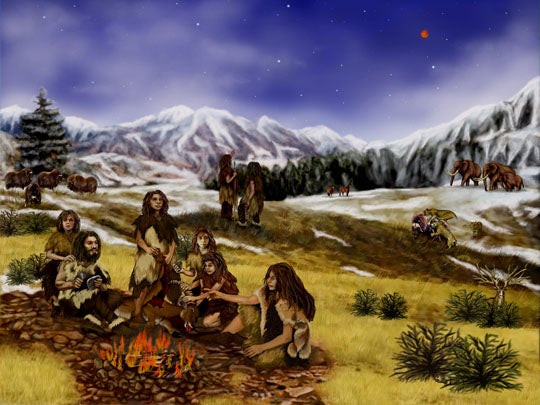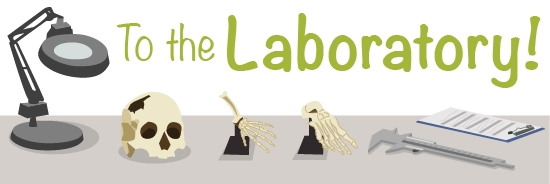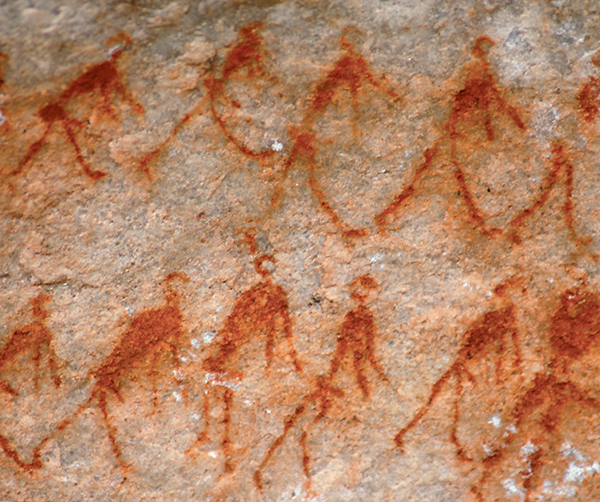show/hide words to know
Ancestry: a person’s origin or background; family or ethnic descent.
Neanderthal: An extinct hominin species that was closely related to humans; Neanderthals occupied regions of Europe and the Middle East and went extinct about 35,000 years ago.
Neanderthals and their DNA
"What a Neanderthal!" You may have heard something similar before. People like to think of Neanderthals as dumb cavemen that carried clubs. But Neanderthals looked a lot like modern humans and were relatively smart.
Neanderthals lived in Europe at the same time as modern humans and are members of our genus, Homo. Because they lived in similar places, scientists wondered whether these two groups made contact with one another. Were there fights between the groups? Did modern humans and Neanderthals mix their families together? Were they having children together? To look at these questions, scientists turned to Neanderthal DNA.
Paleoanthropologists thought Neanderthals were close members of our family because their anatomy was very similar to ours. Now, because technology is much better, we can collect DNA straight from Neanderthal bones. We can then use this DNA to find out exactly how closely related Neanderthals and humans are to each other.
 Scientists have investigated how much DNA is shared between Neanderthals and modern humans. In general, Neanderthal genomes are about 99.5 percent similar to ours. However, genomes do vary a little from individual to individual. When specific parts of the genome of Neanderthals and modern humans are compared, we find that one to four percent of the human genome (the part of the genome unique to humans) in certain individuals is identical to that of Neanderthals.
Scientists have investigated how much DNA is shared between Neanderthals and modern humans. In general, Neanderthal genomes are about 99.5 percent similar to ours. However, genomes do vary a little from individual to individual. When specific parts of the genome of Neanderthals and modern humans are compared, we find that one to four percent of the human genome (the part of the genome unique to humans) in certain individuals is identical to that of Neanderthals.
It is thought this similarity is because those parts of the genome came from Neanderthals. Now, not all humans have this Neanderthal DNA. The individuals that do have Neanderthal DNA have their roots in Europe where Neanderthals were known to live, and in Asia.
Scientists debate about what this DNA similarity means. Some scientists think it shows that certain humans and Neanderthals bred with each another thousands of years ago. Other scientists think the similarity is because humans and Neanderthals share a common ancestor hundreds of thousands of years ago. Because this subject is debated in anthropology, scientists are still researching why this similarity between Neanderthals and certain modern humans exists.
How can I find out about my DNA?
Some lab companies can do a DNA test for you so you can learn about your ancestry. DNA tests are done on a sample that you provide them, usually some of your spit. They will be able to send your results to you in the mail, and you’ll know all about where you and your family came from. Who knows, maybe you have a little Neanderthal in you too!
The National Geographic Genographic Project has collected DNA information from many people around the world to answer questions about human evolution.
Why do humans cooperate and live in groups?
Answer »









